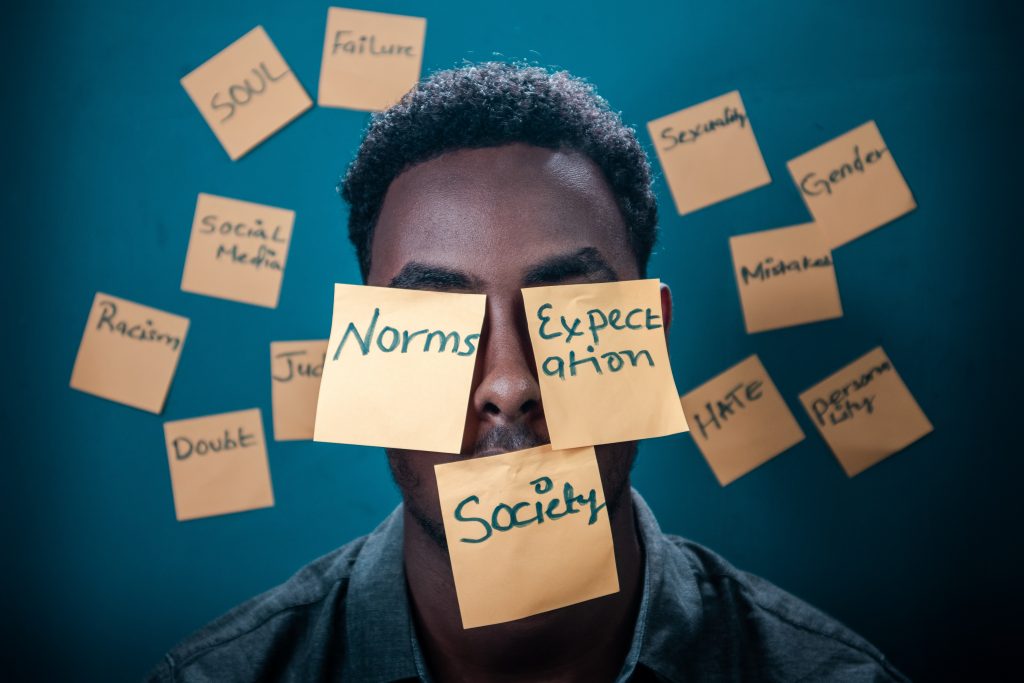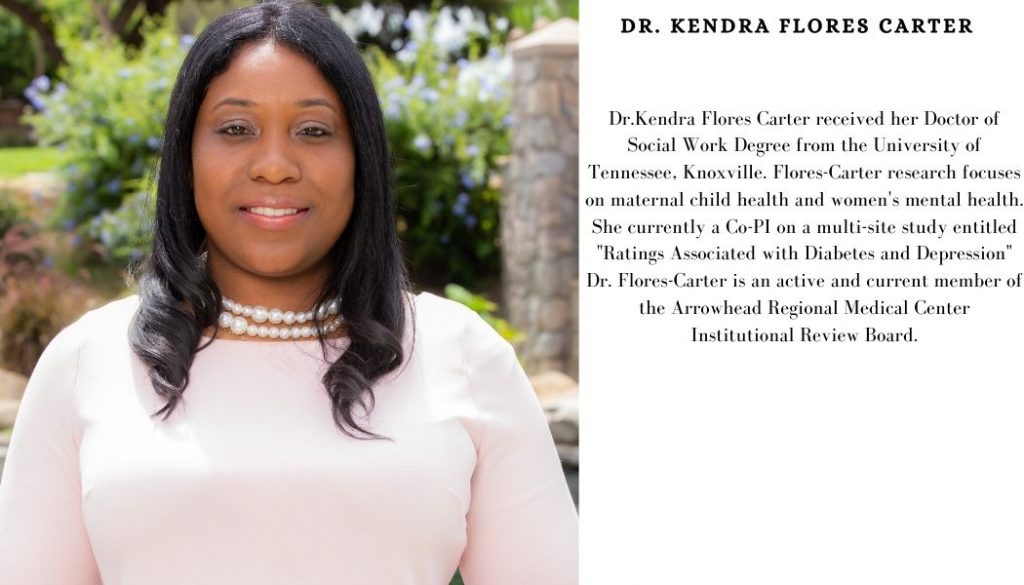The Art of Cultural Humility
By Dr. Kendra Flores-Carter
Phillipians 1:6 reads “that the one who began a good work among [us] will bring it to completion by the day of Jesus Christ” Today I hear the word cultural humility in every meeting, conference, and seminar I attend. Diversity and inclusion seems to be a leading theme for many organizations trying to restructure their administration to meet the needs of marginalized populations. As a marginalized person of Color it is amazing to see all of the strategic planning around having a culturally diverse approach in program innovation, development, and implementation. But as always I have questions on how organizations can competently and effectively incorporate cultural humility in their program development.

Cultural humility refers to the attitudes and practices of working with individuals, groups, and families with a presence of humility. Additionally, it means taking a stance that is other-oriented rather than self-focused. Furthermore, it means investing in learning, communicating, offering services, and making decisions that considers the cultural dynamics of marginalized population intended to serve. Moreover, having a concrete understanding that in order to proceed with any type of program development or program planning an organization must be prepared to consider all these factors before moving forward to fulfill their targeted goals around program development to truly serve marginalized communities.
For many organizations and businesses its easy to include an inclusion and diversity clause in a policy or mention the idea of practicing cultural competency. However, practicing cultural humility is easier said than done. I say this because I seeso many programs today that are targeted towards helping and assisting marginalized populations but I rarely see people of Color in the forefront of creating those programs. How can businesses and organizations create diversity and inclusion programs without the voices of the people the programs are design serve?It’s quite baffling to me to see programs created time after time without the input of the intended population.
To truly exercise cultural humility organizations needs to take into account the lived experiences of the people they provide services too. The stark reality is that many leaders in organizations tend to believe the stereotypes about marginalized groups. Sometimes these biased beliefs are based on what was socially learned or what is shown in the mainstream media. Often times those realities are far from the actual true experiences of marginalized populations.

As a society it is important to understand that from the moment we are born we are socially programmed to believe a set of ideas about certain groupsof people. Sometimes even if it’s not the intent these ingrained beliefs are what controls or influence the decisions made as leaders of organizations. Therefore, it is very important that organization leaders check their biases and ensure that they facilitate an environment where all voices are heard when creating programs that serves communities or color.
Building programs that are targeted towards marginalized population should always includethe voices of those populations. When theirvoices are missing it leaves room for programs to becreated based on biased stereotypical beliefs rather than true facts. Likewise, assumptions are often made about marginalized groups based on media or social conditioning beliefs rather than getting evidence from a qualitative standpoint.Yancu & Farmer(2017) theorized the need for internal practices that leads organizations to have greater cultural awareness, reduced implicit cultural biases, and increased sensitivity to the power dynamics in cross-cultural interactions. Basically, if organizations are open to those principles program development would be much more inclusive.
I believe that practicing cultural humility is God’s working within our souls to give us authentic love and kindness towards others. Most importantly God want us to consider others before ourselves. In the end cultural humility could definitely be an asset to leaderswho may have come from privileged backgrounds with little to no understanding of the experiences of marginalized populations. When we know better we do better but we have to make that lifelong commitment to always be self-aware of our own biases before making decisions that affects the lives of othersthat are not like us.

9 Comments
This was a great read on cultural humility. It is very true and unlikely to see colored people in front of the lines to create programs to help within the community. Being aware of self-biases will change people’s perceptions of stereotypes and can change people within their own communities.
Dr. Flores-Carter, I really enjoyed reading your article. I do agree that often times programs are created to help a certain group of people, however the creators of those programs do not take into account the voices of the people they are attempting to help. I believe that when creating a program intended to help a certain population or group of people, the creators must seek the advice and knowledge of those that they are trying to help only then will they really be meeting the needs of the group.
I really enjoyed reading this post !I too have noticed how diversity and cultural humility has been a key factor in many businesses, organizations, and even media. I find it so wonderful knowing that the need for inclusion is a role many are actively taking. I do agree that often times while companies share they are diverse or inclusive they show a lack of inclusion themselves. Having those in marginalized groups active in diversity and inclusion projects is so vital to help combat biases placed in our society as well as our daily lives.
I completely agree in the importance of understanding biases that even ourselves hold. When people only have knowledge of different cultures based of mainstream medias or what is socially learned there is so much room for misinterpretation. As followers of Christ we should look at cultural humility as a standard and actively work to give those in undervalued groups a voice. We need to look within ourselves to see our own privileges and know that cultural humility can not be found in a day but takes a lifetime to truly understand.
1. Dr. Carter,
Thank you for tackling a topic that so many, persons of Color or not, can sometimes completely overlook. This post stood out to me immediately, and not just because it was the most recent on the page. As woman of color, a First Generation American, there has been so much growth and learning; becoming more aware of topics that you brought up, such as how foundations, organizations, or programs that have been created to serve marginalized peoples are being spearheaded by none of the people they are meant to serve. Without the voices of those who have experienced and endured, how could they possibly be sure they are effectively doing what is best for these specific peoples?
As a First Generation American, I grew up desperately looking for signs of representation – to see other boys or girls who looked like me. Of course, there were the occasional “International Day’s” at school, that enabled me to express my mix of cultures, but the lack of representation, and coming from an immigrant household that implored me to assimilate as best as possible, these were the very beginnings of my misconstrued idea of cultural humility, of what it meant for an organization to truly be working for other people of Color, like myself. I grew up believing that if such groups were creating programs or nodding to any of my cultures, it was a sign of cultural humility; but as you wrote, there is a stark difference in being other-oriented and self-focused. It took me up until the past few years to clearly see how many different interpretations of “cultural humility” exist. How can marginalized peoples ever truly feel seen or heard when said marginalized peoples don’t see representation in these foundations, programs, or organizations that are set in place to help them? There are so many biases set in place, with no true voice from a group of peoples, there will always be gaps and no way to bridge them.
The truest, most effective form of cultural humility stems from following scripture – the blueprint to Christian ways of life. God has always called us to love our neighbors and to see their differences, not glaze over them and love them while overlooking these differences. The fact of the matter is, God purposely made each of us so different; He called us to love each other despite these differences, and to show others who He is through our own actions and words. We were created to not only have relationships with our Creator God, but to unite His peoples, from all walks of life, no matter their skin colors, origins, societal statuses, etc. We were created to show God’s grace and glory to those who have yet to find Him. In other words, like you said, God calls us to consider others, to see and hear others before ourselves. He calls us to an awareness that allows our hearts and minds to truly open up.
This entire post was really good. I see that all the time too that companies will say a lot but not put their plans into action. They often get it wrong because they have asked people through a friend of a friend type of way… I feel that they don’t often go straight to the source.
I do not want to categorize myself as an average person but coming from that standpoint and then witnessing the past movements, you definitely worded it better than I have heard anyone else. This concept of cultural humility is not well-known much less well-practiced. It seems as though this is something that a part of the citizens truly do want to see in our country but there is also the other half which is completely against this concept for whatever reason.
“How can businesses and organizations create diversity and inclusion programs without the voices of the people the programs are design serve?” This is just as baffling to me as I can only imagine it is for you. There is a need of awareness in this area and more so common sense because I do not see a manner of how these organizations will ever successfully assist those who need assisting without their input.
Lastly, I like concept that cultural humility is God’s working within us since one of the greatest commandment we have is to love our neighbor.
I agree fully with the idea that when creating programs or services to assist individuals/groups who are experiencing difficult times, that it is important to include people on the team who are either a part of that culture/group or have experience working with them. It’s hard to know what people need or how to properly interact with different backgrounds if you have no experience with them yourself.
Dr. Flores-Carter, thank you so much for this informative post!! Cultural humility is vital in all circumstances. People in positions of power should use their privilege to bring awareness and opportunities to marginalized populations. Businesses and organizations need to be held accountable and follow through with the inclusivity they claim to have. Words mean nothing if their actions contradict. Reducing stereotypes and biases can be done by amplifying marginalized voices.
Dr. Carter,
I really enjoyed reading your blog on cultural humility. There was not one sentence that I did not agree with. You mentioned how “For many organizations and businesses its easy to include an inclusion and diversity clause in a policy or mention the idea of practicing cultural competency.” This statement stood out the most to me through out the entire post. Especially from the past, where inclusion of color wasn’t as big, where companies would hire on those fo color but only to have them included in statistics but not in the front of their work. Yes, we have seen some improvement throughout the years, however it is just the beginning of what can be.